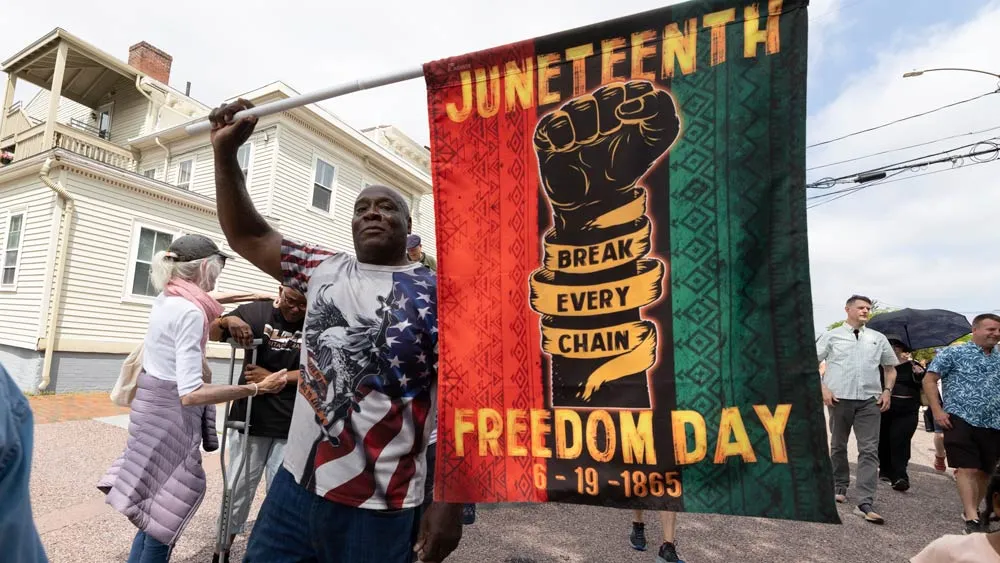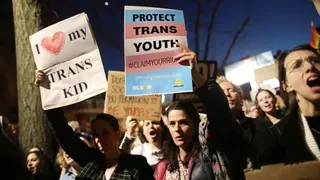April 9, 2008
Ivy League Imposter "Outed" by His Gay Lover
Kilian Melloy READ TIME: 3 MIN.
A 26-year-old Yale student turned out to have seemingly falsified his application and a letter of recommendation; it all came to light when his boyfriend reported him for harassment.
The story was the subject of a lengthy Apr. 9 article in the Yale Daily News, which reported on the apparent fraud that resulted when the student, who had claimed to be a transfer from another Ivy League school, Columbia, received nearly $47,000 in financial aid to which he was not entitled, reported the Yale Daily News.
While the Yale publication declined to publish the man's name, citing a history of emotional instability, the New York Post identified him as Akash Maharaj and ran a photo, purportedly of Maharaj, whose national origins were reported to be Trinidad and Tobago.
As part of his reportedly bogus paperwork, Maharaj seemingly supplied faked transcripts from Columbia and a letter of recommendation from a Yale professor of Slavic languages. The professor in question, however, evidently had not written any such letter.
The Post reported that Maharaj had won a prize for literature while at Yale, but when the fabricated details of his application--including a falsification of his age--were found out as the result of an investigation into Maharaj prompted by a report from his boyfriend, Yale's admissions staff moved quickly to reverse his acceptance to the prestigious university and to have him placed under arrest, the Yale Daily News reported.
The school began looking more closely into Maharaj after he reportedly made threats against his boyfriend in June of 2007, after the boyfriend had broken off their relationship upon finding out that Maharaj was older than he claimed to be. The boyfriend had also taken Maharaj to seek medical intervention after Maharaj had threatened suicide; it was when the boyfriend attempted to have Maharaj committed that he received the alleged death threat.
The boyfriend reported the threats to Yale officials, and also said that he was unsure about whether Maharaj was who he claimed to be, reported the Post.
When interviewed by the Yale Daily News, Maharaj denied falsifying his application except for one detail: he said that he lied about his age out of embarrassment about being older than his classmates.
Said Maharaj, "Everything I submitted to Yale was authentic."
But the investigation into his application to Yale turned up inconsistencies and evident falsehoods; when asked about an apparently falsified transcript, Maharaj said that his identity had been stolen, leading to confusion in Columbia's record-keeping. A second transcript was investigated and determined also to be a fabrication, the Daily News reported.
Another thread picked up upon investigators indicated that Maharaj may also have claimed at some point to have been a student at New York University, though Maharaj said that he had only audited classes there.
At another point, Maharaj said that the confusion had arisen because another student had the same name as himself.
The Yale Daily News reported that facts were also heard to discern from Yale officials, who referred questions elsewhere, denied knowing about the matter, or invoked confidentiality rules.
According to the Post, Maharaj went to Brooklyn after his brother posted bail on his behalf. The brother responded to a request for comment by saying, "I would not like to be contacted about this matter ever again," reported the Yale Daily News.
Details on Maharaj's past were understandably unclear, given the nature of the case, but the Daily News did piece together a picture of his life before Yale. Maharaj came to America in 2001, and he did attend Columbia, though it is not clear for how long.
A conviction on fraud and larceny charges could mean a sentence of up to 25 years in prison in the state of Conn., the Daily News reported; Maharaj is expected in court for an Apr. 14 hearing, where Maharaj may see a request for accelerated rehabilitation granted.
If the request is honored, Maharaj may see the charges dropped and his record wiped clean. The idea is that first-time minor offenders who are not likely to repeat their offenses get a second chance, according to Maharaj's lawyer, Glenn Conway. If not, the Daily news reported, the case will go to trial.
The Daily News cited Maharaj as having told the Yale publication that he anticipated seeing the request granted, at which time he though he would go back to Columbia for the next academic year.
Kilian Melloy serves as EDGE Media Network's Associate Arts Editor and Staff Contributor. His professional memberships include the National Lesbian & Gay Journalists Association, the Boston Online Film Critics Association, The Gay and Lesbian Entertainment Critics Association, and the Boston Theater Critics Association's Elliot Norton Awards Committee.







